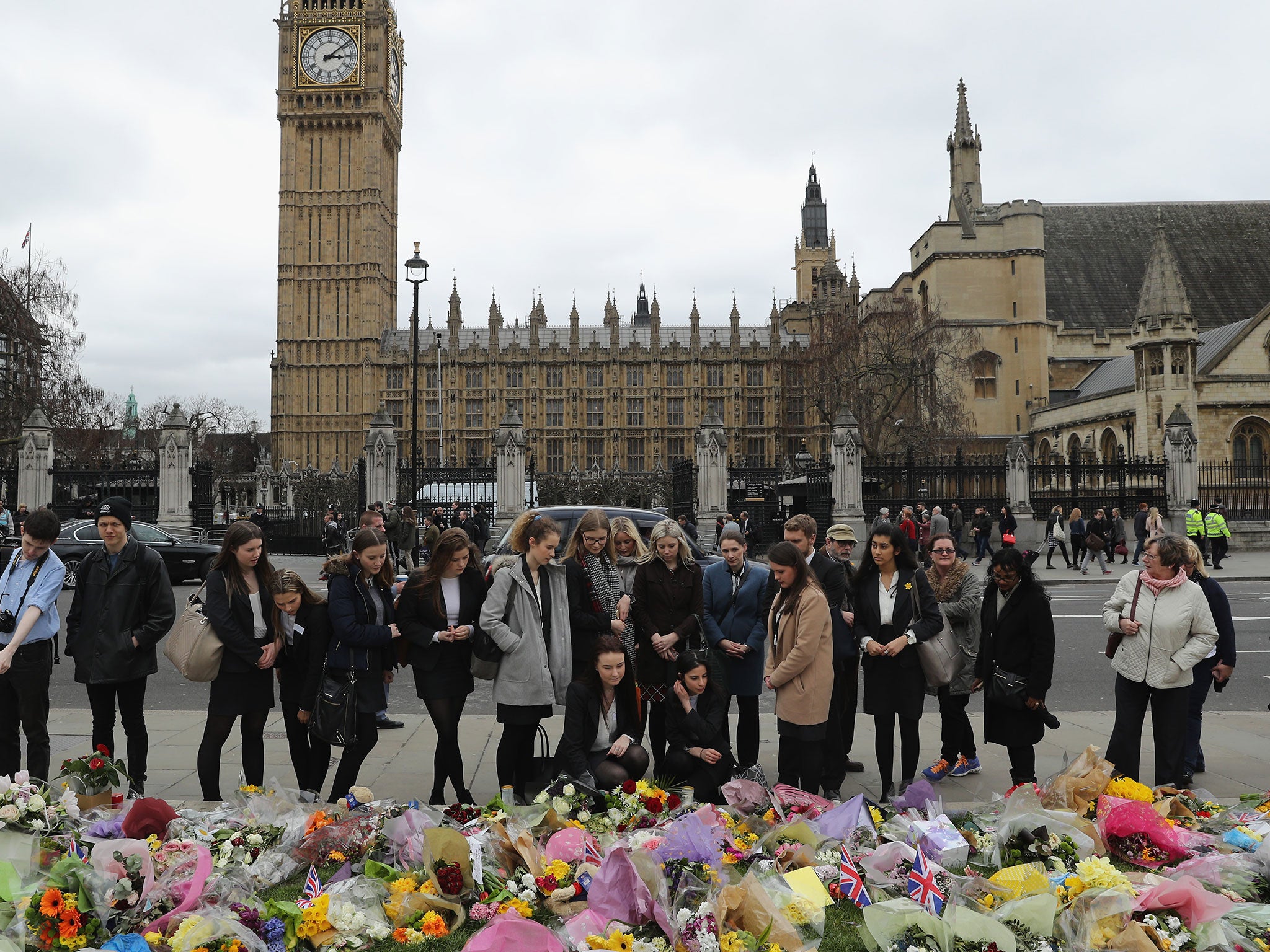Westminster attack inquests - latest updates: Coroner gives conclusions on how victims of terror attacker Khalid Masood died

The inquests into the deaths of the victims of the Westminster attack are due to conclude.
Chief coroner Mark Lucraft QC is due to give his conclusions at the Old Bailey on the deaths of four civilians and police officer Keith Palmer, who were murdered by terrorist Khalid Masood.
He will consider whether factors including security at the Houses of Parliament, the lack of barriers on Westminster Bridge, police body armour and security service investigations into Masood played a role in their deaths.
Please allow a moment for the live blog to load.
On Tuesday the court heard closing submissions, with Jonathan Hough QC, for the coroner, saying the inquests should conclude all five victims were unlawfully killed.
He said: “Each was murdered in a terrorist atrocity which was no less brutal for its lack of sophistication.”
Masood, 52, drove into pedestrians on Westminster Bridge on March 22 last year, killing American tourist Kurt Cochran, 54, retired window cleaner Leslie Rhodes, 75, Aysha Frade, 44, and Romanian tourist Andreea Cristea, 31.
He then stormed through gates near the Houses of Parliament and fatally stabbed Pc Palmer with two knives.
In his closing argument, Gareth Patterson QC, for families of victims on the bridge, urged the coroner to make a report on the circumstances of the case to “protect the public”.
On the role of MI5, whose knowledge of Masood has been heavily scrutinised, he said: “We do think there is room for improvement in terms of decision-making.”
He suggested security services should look again at when to investigate suspects and when to stop, and to take account of violent backgrounds.
Mr Patterson also called for the Government to “try again” with tightening rules for hiring cars.
Dominic Adamson, representing PC Palmer's widow Michelle, said that there was “a systematic failure” in protecting unarmed officers on guard at the Palace of Westminster.
He told the coroner: “In my submission it is very clear that you can be satisfied that as a result of those failures the consequences for Pc Palmer were that there was a substantial loss of the opportunities for him to be saved.”
No firearms officer had been near Carriage Gates, where Pc Palmer was on duty, for nearly an hour before Masood's attack.
Susannah Stevens, representing the officer's family, said: “If there had been authorised firearms officers present at that time, in our submission, on the balance of probabilities they would have been able to prevent a loss of an opportunity of saving Pc Palmer's life.
”Or to put it another way, on the balance of probabilities, their absence contributed to Pc Palmer's death.“
The court will hear further closing submissions in the morning, before the coroner begins giving his conclusions.
Judge Lucraft is recounting evidence given by Transport for London, which said bridges were not identified as particularly vulnerable to terror attacks.
Following the vehicle attacks in Nice and Berlin there was new guidance on crowded public events and places, but it was not understood to apply to bridges
Judge Lucraft says that concludes his summary of evidence, and he is now taking on the question of Article 2.
He says it is engaged in the death of PC Palmer but not the four bridge victims
The article covers the “right to life” and where it is triggered following a death, a broader inquiry into the death occurs that specifically considers state and statutory negligence
Representatives of PC Palmer's family argued that it should be engaged, while a lawyer for the Metropolitan Police claimed it was "not arguable" earlier today
Earlier, counsel to the inquest Jonathan Hough QC said the systems for police changing post were "arguably deficient", leaving officers unaware of their instructions. "We also see that the system could be improved"
Mr Hough said : "It cannot be that it is unarguable that there was a means of ensuring that almost all of the time officers in this critical place were complying with their instructions."
He says the question is "whether it is arguable that a systemic breach deprived PC Palmer of a real and substantial chance of survival"
The coroner will address that argument shortly
Judge Lucraft is addressing PC Palmer's death and says he was unlawfully killed after stepping forward to challenge Masood
He says armed officers had been "some distance away and out of view" of Carraige Gates for some time before the attack, despite written instructions to the contrary.
He says that if they had been stationed on Carriage Gates "it is possible that they would have been able to prevent PC Palmer suffering fatal injuries."
Judge Lucraft is to make a "prevention of future deaths" report and is inviting submissions for it.
It will be circulated to "all interested persons".
Lawyers representing different parties are praising the "dignity and strength" of all the families, some of whom have attended the inquests, and thanking everyone for their assistance
The inquests have now concluded. A separate inquest into Khalid Masood's death is due to start later this week

